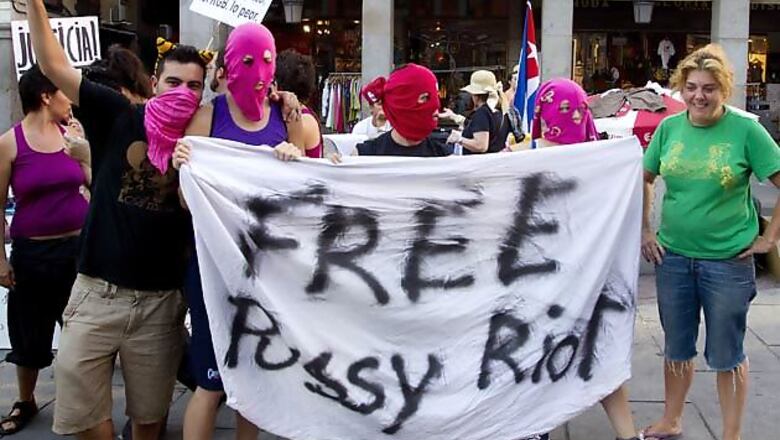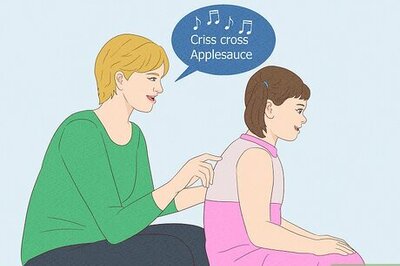
views
Moscow: The verdict in the trial of the feminist punk rockers Pussy Riot comes barely more than 100 days into Vladimir Putin's new term as Russian president - a notably hard hundred.
Since it began on May 7, Putin's third term in the Kremlin has appeared mostly defensive and downbeat. The swagger and brag of his first two terms is absent; he hasn't even made one of his trademark TV appearances with wild animals or engaged in manly, bare-chested sports.
Instead, the focus has been on opponents, either real or imagined - mostly trying to keep them at bay, but occasionally making awkward attempts to engage them.
Some of the highlights of Putin's first hundred days.
Class consciousness
One of Putin's first actions as president was to appoint as presidential envoy to the Ural Mountains region a hard-faced tank factory worker named Igor Kholmanskikh, who had no formal qualifications for the job. His main selling point: Kholmanskikh had earned Putin's gratitude by appearing on national television, vowing that he and his co-workers were ready to come to Moscow to fight protesters who had started rising up en masse.
The appointment underlined Putin's characterisation of the protesters as a pampered and deluded elite and suggested he could try to exploit class resentments. "He has rejected pretensions of being the president of all Russia ... he has started to work exclusively with the image of `the leader of the simple people'," author and commentator Boris Akunin wrote in his blog this week.
Controversial laws
Under one of the signature measures passed during Putin's first 100 days, the maximum fine for participating in unauthorized protests shot up 150 times, to 300,000 rubles (about $9,000). Authorities so far have given permission to hold occasional mass protests, but that leash could be reeled in at any time.
Soon afterward came a law requiring non-governmental organizations engaging in ill-defined "political activity" and receiving money from abroad to register as foreign agents. The law reinforces Putin's repeated claims that the United States and the West are funding efforts against him and plays to the strong streak of nationalism in Russia. But it could also be read as a tacit confession of weakness - that a vast and proud country is nonetheless very vulnerable.
Another new law calls for a blacklist to ban websites that carry content deemed harmful to children. But the list itself will be kept secret and critics say the law could be used to shut down troublesome pro-opposition sites.
Clumsy conciliation
Amid the flurry of tough and ominous measures, Putin has made a couple of small attempts to appear less rigid, though with questionable success.
In a visit to a camp for politically active youth, Putin said his notorious remark likening the opposition demonstrators' white ribbon symbol to condoms wasn't intended as an insult. Instead, he said, he meant he was offended that they were using a foreign-inspired political "technology."
Two weeks ago, he said he hoped the punishment for Pussy Riot's guerrilla performance in Moscow's main Orthodox cathedral would not be "too severe." That skirted the question of whether the past five months that the band members have spent in jail wasn't severe.
What's ahead
With more than 2,000 days to go in his current term, Putin faces some significant challenges.
Most immediately, the opposition will try to revive the mass demonstrations that went on hiatus during the summer vacation season. Organizers have called for the next one in Moscow to be held Sept. 15. There's no word yet on whether city authorities will give permission for it, and whether large numbers of protesters would risk running afoul of the new tough law on unauthorized demonstrations.
Much of Putin's power stems from the prosperity that took hold of Russia during his previous terms. But that hinges to a large extent on oil and gas exports, both of which are vulnerable. Extensive shale gas development outside Russia could reduce revenues for the Kremlin's coffers and deprive Russia of some of the political leverage it has overseas.
But Putin has at least one presumably happy time to look forward to - the 2014 Winter Olympics in Sochi. Winning the bid was a standout moment of his previous time in the Kremlin and he's sure to put the full force of his power into holding games that will attract millions of admiring eyes to Russia.




















Comments
0 comment